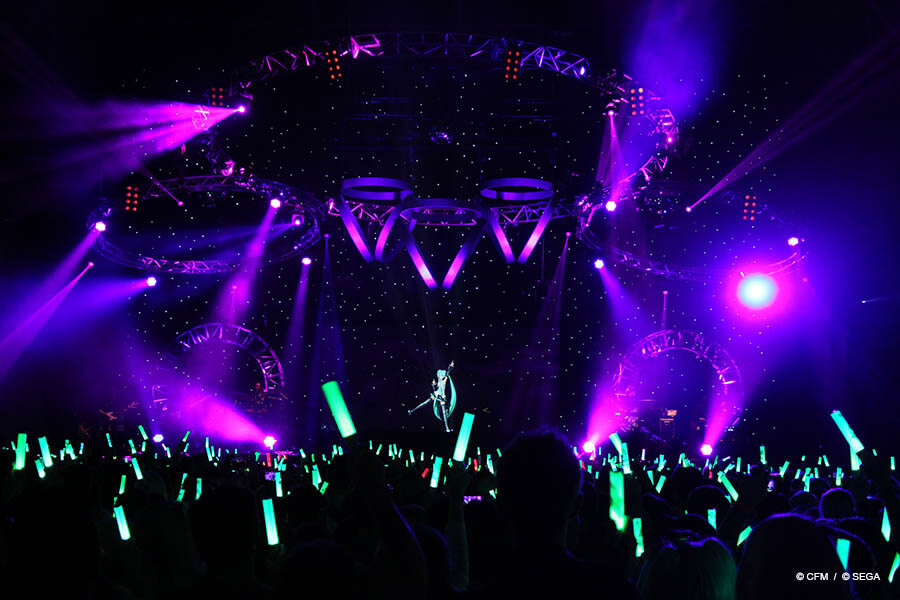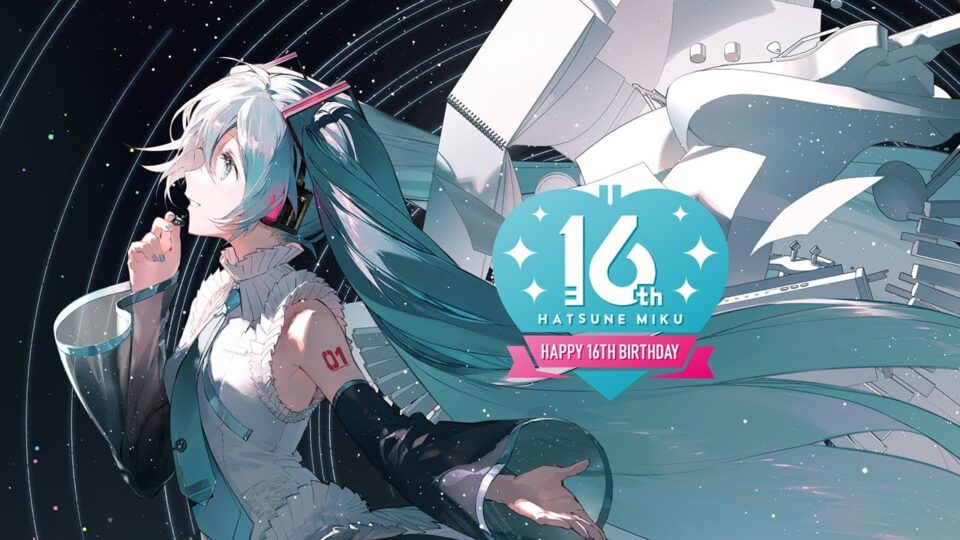Happy Birthday Hatsune Miku!
As fans gear up to celebrate the Japan-origin vocaloid singer Hatsune Miku’s 16th anniversary, here’s looking at this digital diva
Circa 2007, August 31st. A brand-new kind of star was born, the twin-tailed, turquoise-haired Hatsune Miku, who wields a leek like a lightsaber.
Cut to 2023, this eternal 16-year-old continues to be the ruler of VOCALOIDS. So, who is she?
As the lyrics of Anamanaguchi’s MIKU go — “She’s got blue hair, a blue tie and she’s hiding in your WiFi.”
That last bit is probably wrong, but who knows? This is Hatsune Miku, rumored secret overlord of the known Holographic Universe.
Around 2004, Yamaha released VOCALOIDS, voice synthesizers that could actually sing. As long as you had a voicebank, you could input whatever lyrics you wanted into the software and voila! A song was sung. We had LEON, LOLA, MIRIAM (English voicebanks) along with KAITO and MEIKO (Japanese voicebanks). However, reception for these were lukewarm at best.
Crypton Future Media, after handling the release of the Yamaha Vocaloids, created their own. Using the technology of Yamaha’s Vocaloid 2 and taking voice samples of voice actress Saki Fujita, (Ymir from Attack on Titan), they developed CV01 (Character Vocal Series 01).
Hatsune Miku. 初音ミク
The first sound of the future.
A virtual singer, nay, an idol. There was something about her that instantaneously clicked with the audience. She created a new variable in the world of music production. With a working computer and an instrument track, you could create a song that she would sing for you.
LEON and LOLA’s voice ranges were meant more for soul; using them for anything else took away their gravitas. Miku on the other hand had a clear, neutral sound — transparent almost, allowing her voice to seamlessly adapt to any genre of music, be it pop, rock, metal or jazz. If you can create it, Miku can sing it.
Capturing the public imagination, she became a sensation; everyone was drawing her, everyone wanted to be her (via cosplay), some even wanted to be with her (one even married her!).
Everyone was using her voice, be it for songs or even short animated videos that came up on Nico Nico Douga (think of it as the Japanese version of YouTube) that soon found its way to YouTube and cemented her status as a global sensation.
There was no stopping her once Miku went mainstream.
Miku has even opened for Lady Gaga’s world tour ArtRave: The Artpop Ball. Pharrell Williams did a remix of Livetune’s “Last Night, Goodnight” which was sung by Hatsune Miku. She even provided vocals on the Guardians of the Galaxy Vol. 3 soundtrack in “Koinu no Carnival.” She’s even appeared on the Late Show with David Letterman.
In Sapporo, Japan there’s even the SNOW MIKU festival that celebrates Miku in the form of an ice sculpture. Artists all over the world compete for their Miku to be the official design for the year.
There’s Magical Mirai which takes place in Japan, an event that has live concerts and art exhibitions centering around the VOCALOIDs, an immersive convention for the VOCALOID community. Miku along with her fellow VOCALOIDS like Kagamine Rin and Len, Megurine Luka, Meiko and Kaito perform sold-out shows housed within these events.
Miku has even toured the world performing live at the MIKU EXPO. London, Paris, New York, L.A. and Hong Kong — Miku’s been there and more. When Miku sang “World is Mine,” she really wasn’t kidding.
How does one even have a live concert for a virtual singer like Miku who exists solely in a digital space?
She performs in all her holographic glory in front of a live audience.
Technically she could even perform at your house via a holographic projector or a working Pepper’s ghost illusion.
But that is part of what makes Miku so accessible.

Hatsune Miku is a chameleon who changes color as per her user’s wishes. There’s no set lore for Miku as such. She’s been everything from a cannibal, a lonely high school girl, a lone survivor in an apocalyptic wasteland to a vendor of vegetable juice, a vampire, a girl suffering from a crippling addiction to MMORPG (massively multiplayer online role-playing game). She can be anything you want her to be.
Initially, she was meant to be for professional production but with the advent of media-sharing websites, Miku could be used by anyone equipped with basic technology. It opened up a whole new world to aspiring music producers as well. Many who kicked off their careers as VOCALOID producers have now made it big — Kenshi Yonezu (singer/songwriter responsible for the Chainsaw Man opening “KICK BACK”) is actually Hachi the VOCALOID producer who created songs like “Matryoshka,” “Panda Hero,” “Sand Planet” and “Donut Hole.”
Miku and her fellow VOCALOIDS are not to be confused with the current AI that can mimic anyone’s voice be it living or dead. VOCALOIDS do have voice providers, yes, but the singers who have lent their voices to VOCALOIDS are completely separate entities from the VOCALOIDs themselves. You are not impersonating anyone by using a VOCALOID. You are if you use AI. There is a clear and distinct line that’s drawn.
Miku’s idol status has more or less created an entire subculture. She’s been dressed by Givenchy and featured in Vogue. She’s the Goodsmile Racing poster girl, part of the team that competes in the SuperGT.

Miku has also been sent to space. There are three metallic plates that are the balancing weight for the JAXA Akatsuki Venus Climate Orbiter have Hatsune Miku engraved on them; so yes, essentially Miku has gone to spread her gospel in space. If the Earth is already hers, why not the universe?
She has made several cameos in a number of anime series and video games. She has her own manga series, Maker Hikōshiki Hatsune Mix. The Project DIVA series of rhythm games primarily feature her songs. There was even a turquoise Hatsune Miku edition of Sony’s PlayStation Portable, best girl on the best portable console!
Sony has a variety of Hatsune Miku Walkman to choose from (this year’s 16th anniversary release looks particularly nice).
In 2013, Sony released a limited edition Xperia featuring Hatsune Miku with a variety of Miku-themed applications. Right from the boot animation, it screams Miku; you have the Miku keyboards, the Miku wallpapers, the Miku alarm, the Miku weather. DOCOMO phones in Japan have a Butler Sheep assistant; in the Miku Xperia, this has been switched for a Sheep Miku that wanders across your screen. She can be found reading, singing and even handing you cake! She also turns into the pink Sakura Miku for the duration of the Cherry Blossom season in Japan. Unfortunately, if you still do own one of these Miku Xperia phones, many of the applications we use on our smartphones today won’t work on this device from October.
She has a dedicated fanbase and community that celebrate March 9th as Miku Day (ミクの日, Miku no Hi) as it can be read as mi (3) ku (9). Everything about her from concept art to music by the fans, for fans, of the fans, is probably one of the reasons she’s so popular. As her song goes, she’ll Miku Miku you (for reals)!
So, here’s to you, Hatsune Miku!







